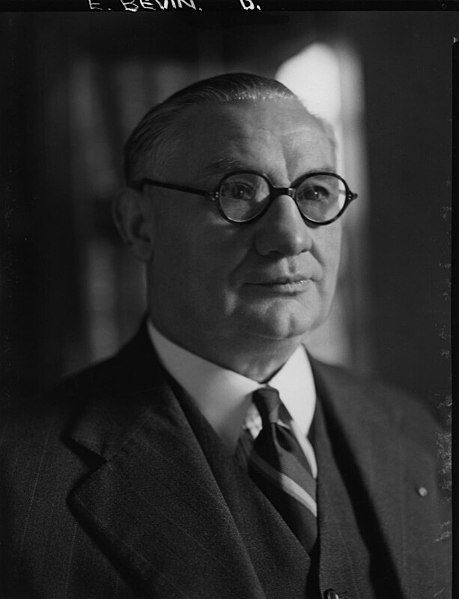Bevin Boys were young British men conscripted to work in coal mines between December 1943 and March 1948, to increase the rate of coal production, which had declined through the early years of World War II. The programme was named after Ernest Bevin, the Labour Party politician who was Minister of Labour and National Service in the wartime coalition government.
Bevin Boys receiving training from an experienced miner at Ollerton, Nottinghamshire, February 1945
Ernest Bevin (photographed in 1942)
A classroom lecture where Bevin Boys are learning about the Davy lamp at Ollerton, Nottinghamshire, in February 1945
Inscription reads: "The Bevin Boys were National Service conscripts, directed to work underground in British coal mines, providing unskilled labour to safeguard vital coal production to power the British war effort and produce coal for the nation."
Conscription in the United Kingdom
In the United Kingdom, military conscription has existed for two periods in modern times. The first was from 1916 to 1920, and the second from 1939 to 1960. The last conscripted soldiers left the service in 1963.
World War II poster from the United Kingdom
WW2-era poster with "England expects" legend
National Service (1939–1960) memorial at the National Memorial Arboretum
Bermuda Regiment recruits clean their Ruger Mini-14/20GB rifles prior to a shoot at Warwick Camp during the 1994 Recruit Camp.








